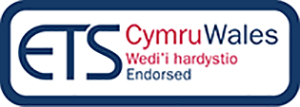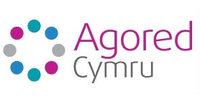
Course details
UCAS Code
4KWS
Year of entry
2026
Duration
4 YRS (FT)
UCAS Tariff
48-72
Institution Code
G53
Location
Wrexham
Course Highlights
Flexible
study options
Endorsed
by Education Training Standards Wales
2nd
in the UK for Student Satisfaction*
Why choose this course?
This is an exciting degree programme, specially designed for those wanting to work positively with children, young people, marginalised groups and communities.
You can gain a professional Youth Work qualification endorsed by Education Training Standards Wales which will allow you to register with the Education Workforce Council in Wales as a Youth Worker in the UK and further afield.
This course:
- Has flexible study options to join the class using Hyflex and online learning to study from wherever you are
- Is hands-on, with over 50% of the course involving placement, allowing you to gain practical experience to support your studies
- Leads to registration with the Education Workforce Council in Wales upon successful completion
- Gives you the opportunity to do a placement internationally
- Has graduates that are employed in a range of settings from the local authority, voluntary and community sector, and education providers across England, Wales and internationally
- Will enhance your employability due to the experience, contacts and opportunities provided by undertaking fieldwork placements
*This course is part of a subject area ranked 2nd in the UK for Student Satisfaction in the Social Work subject area league table in the Complete University Guide 2026.


Key course features
- A degree programme with professional endorsement, and course content aligned with National Occupational and Professional Standards in the sector
- Opportunities for continuing professional development through additional training opportunities and professional networking on a course with strong links to employers and local training providers
- Learn and gain experience with over 50% of your degree in supervised fieldwork practice, and a placement in each year of study. This can be in a variety of settings either in the UK or abroad
- Develop skills in teamwork, positive communication, working with groups and individuals, reflective practice and leadership
- Develop knowledge and core skills for Youth Work practice and informal education that are transferable to work with children, young people and adults in a range of different settings
What you will study
This is a course for those wanting to work within informal education, examining youth and community theory and developing your practice in working with young people and communities through participation, empowerment and partnership working.
There are opportunities to develop youth and community work skills internationally both in Europe and further afield; taking into account the impact of emerging trends in Welsh, UK, European and global youth policy and practice.
YEAR 1 (FOUNDATION YEAR)
The Foundation Year is an integrated year where you will study core modules with a broad range of students from across the Faculty of Social and Life Sciences, giving you access to different perspectives and networking opportunities.
The modules will equip you with key skills needed for Higher Education and beyond. They will give you the chance to explore your subject area and available careers, allowing you to adapt your reading and assessments to be relevant to your degree pathway.
Alongside teaching from the broader faculty staff, you will be able to meet with staff and other students from your main degree pathway and get involved with events and opportunities that they are running.
- Study Skills for Success (Core): This module will provide a solid foundation in academic conventions and time management skills to help you to progress through your degree.
- Resilience in Higher Education and Beyond (Core): Personal development and resilience are as important as academic skills in the accomplishment on your journey towards graduation, and this exciting module will equip you with the attributes needed for this.
- A Day in the Life (Core): This module allows you to explore the potential career options open to you on completion of your chosen degree. You will be exploring the professions linked to your degree and start preparing your graduate portfolio for employers.
- Life and Work in the Welsh Context (Core): This module will give you the opportunity to explore your subject area and/or desired career in relation to living and working in today’s Wales.
- Welsh for First Time Learners (Optional): This module provides an introduction to the Welsh language for those taking their first steps.
- Numeracy (Optional): If your degree requires a competent level of numeracy, you may be advised to choose this option.
- Professional Communication in the Workplace (Optional): In this module, you will begin to develop the skills and aptitude necessary to communicate effectively in a professional context.
- Maths and Experimental Design (Optional): If your degree pathway requires an understanding of numeracy and sciences, then this module is designed to provide the opportunity to achieve that.
YEAR 2 (LEVEL 4)
In year two, you will study the values and principles of youth and community work, creative skills and group work, and develop a knowledge of safeguarding and multi-agency working.
MODULES
- Placement 1: Preparation for Professional Practice, the first fieldwork placement helps you to establish the basic foundations of good youth and community work practice and embed reflective thinking skills.
- Values and Principles of Youth and Community Work: Examine the core principles of youth and community work. Understand the values of informal education, in particular recognising and understanding anti-oppressive practice. students will start to explore and develop their professional identity.
- Working Creatively with Groups: An exciting module bringing together group work theory and creative practice.
- Working Together to Safeguard Others: Exploring the role of the youth and community worker in safeguarding young people and vulnerable adults, and how to work effectively within multi-agency settings.
YEAR 3 (LEVEL 5)
In years three and four, you will build upon this learning, exploring politics and social policy, analysing informal education and developing skills in social research, international youth work, leadership and supervising others.
MODULES
- Placement 2 - Integrating Professional Practice: The second fieldwork placement is a block placement, allowing you to be embedded within the field of youth and community work and develop your skills in practice. This could be a placement within Europe or further afield.
- Political and Sociological Perspectives in Youth and Community Work: Identify and analyse how political agendas and social policies can shape the context of practice, and recognise different political perspectives on welfare and social policy.
- International Youth Work: An opportunity to explore the benefits of international youth work and intercultural learning for young people. Identifying different youth work practices across the world, and the role of the youth and community worker in understanding their own, and helping others to understand their own cultural identity.
- Research Methods: Identify what is meant by social research, and how it can be applied to investigate an area of practice or a social issue within youth and community work.
YEAR 4 (LEVEL 6)
In your final year, you will also undertake a research project, and develop skills and values that demonstrate your ability to become a professional practitioner.
MODULES
- Placement 3 – Leading in Professional Practice: An opportunity for you to put leadership and supervisory skills into practice in a youth and community work setting.
- Research Project: Supported by a research project supervisor, you will conduct a piece of unique research into an area related to youth and community work that will positively impact on practice and policy.
- Leading in Contemporary Youth and Community Work Practice: Identify and critically evaluate models of leadership in youth and community work contexts, analysing the skills required to lead in contemporary practice and the demands of working within evidence-based practice environments.
- Professional Supervision: You will understand the importance of professional supervision in supporting and developing staff and volunteers, and develop skills to implement this in practice.
- Critical Analysis of Education in Youth and Community Work: Set within the current youth and community work policy context this module is an in-depth exploration of the core values and principles of informal education, critically analysing the concepts of dialogue, participation, empowerment, partnership and anti-oppressive practice. You will complete the module having developed their professional identity as informal educators.
The information listed in this section is an overview of the academic content of the programme that will take the form of either core or option modules. Modules are designated as core or option in accordance with professional body requirements and internal academic framework review, so may be subject to change.
The information listed in this section is an overview of the academic content of the programme that will take the form of either core or option modules. Modules are designated as core or option in accordance with professional body requirements and internal academic framework review, so may be subject to change.
Entry requirements & applying
Applicants need to have completed a relevant L3 qualification. Previous experience of 100 hours in a Youth and Community Work setting is required and must be evidenced. This can be gained in voluntary or paid work within the field of youth and community work. The programme team can advise students regarding volunteering and work experience opportunities if required.
All applicants considered suitable for the course will be interviewed, and those with disabilities or from relevant courses will automatically be offered an interview.
Many modules will require you to be working in, or have access to, a suitable youth and community work practice environment in order for you to contextualise your learning and complete the assessments.
You will also be required to complete an Enhanced Disclosure and Barring Service (DBS) clearance (previously known as CRB) so that a check can be made on your suitability for working with children and/or vulnerable adults
Teaching & Assessment
Teaching and learning
The degree is delivered using a unique Hy-Flex approach to learning. This means that students can join the classroom in person or join synchronously online to engage in the learning activities. Sessions are also recorded for students to engage with alongside asynchronous online learning activities to scaffold the learning from the module.
Assessments are designed with the dual aims of supporting a student’s professional development and their academic understanding. This builds knowledge and skill from a belief that being an excellent practitioner means not only working with people, but also being able to express yourself in a range of ways that includes writing reports, documents and essays based on the collection and analysis of evidence to build an argument.
Throughout the programme, and within individual modules, a variety of assessment methods are employed which seek to demonstrate equity with respect to the individual needs, learning styles and interests of students. The forms of assessment are selected to ensure that they characterise the academic level of the modules, and are designed to enable students to explore the philosophies, concepts and theories underpinning youth work and community work, through the exploration and analysis of issues pertinent to these areas of social provision.
The transference of learning from one module to another is encouraged, and the core modules provide a focus for this. As such, assessment methods on this programme are used to develop a student’s confidence and ability to carry out a range of transferable skills, which are considered useful in both academic work and professional practice.
Assessments on this programme will take on a variety of forms, including essays, presentations, reflections, portfolios and contributing to online forums.
Teaching and Learning
We offer workshops and support sessions in areas such as academic writing, effective note-making and preparing for assignments.
Students can book appointments with academic skills tutors dedicated to helping deal with the practicalities of university work. Our student support section has more information on the help available.
In terms of particular needs, the University’s Inclusion Services can provide appropriate guidance and support should any students require reasonable adjustments to be made because of a recognised prevailing disability, medical condition, or specific learning difference.
Career prospects
Successful completion of this course leads to a JNC professional Youth Work Qualification, which is requirement for registration with the Education Work Force Council in Wales. This is also the professional qualification required for most Youth Work jobs in England and Scotland. You will complete 900 hours of placement on the course, which provides you with relevant work experience in the Youth and Community Work sector.
Graduates from the course work in a variety of settings from the local authority, voluntary and community sector, and education providers across England, Wales and internationally, including working in projects and services in the following areas:
- Young Carers
- Care Leavers and Young People in Care
- Young Offenders
- Hospital Youth Work
- Mental Health
- Youth Homelessness and Housing
- Youth Sports and Health Development
- Youth Clubs and Street Based Youth Work
- Child Sexual Exploitation
- Outdoor Education
- Community Development
- Mentoring and Advocacy
- Young People who have disabilities
Our dedicated Careers and Employability team is committed to helping you achieve your professional goals. They provide personalised advice, useful resources, and extracurricular employability events to prepare you for the job market.
You may choose to further your expertise through postgraduate studies. Explore our postgraduate courses for more information.
Fees & funding
You do not have to pay your tuition fees upfront.
The fees you pay and the support available will depend on a number of different factors. Full information can be found on our fees & finance pages. You will also find information about what your fees include in the fee FAQs.
All fees are subject to any changes in government policy, view our undergraduate fees.
Accommodation
At Wrexham University, we offer on-campus en-suite rooms within our Wrexham Student Village. These private, fully furnished spaces are conveniently located, providing easy access to campus facilities, study areas, and social spaces. Plus, you’re just a 10-minute walk from the city centre!
With all bills included, free Wi-Fi, 24/7 security, and large social areas, you’ll find everything you need for a great student experience.
Explore our student accommodation options to find your perfect home away from home.
Upcoming Open Days.
Join us at an upcoming open day to meet your lecturers, find out more about our courses, discover our facilities and get a taste of student life.
Browse all of our open days & events.

Youth and Community atWrexham University
Thinking of a career in Youth and Community? Hear from lecturers and students about our course at Wrexham University.


